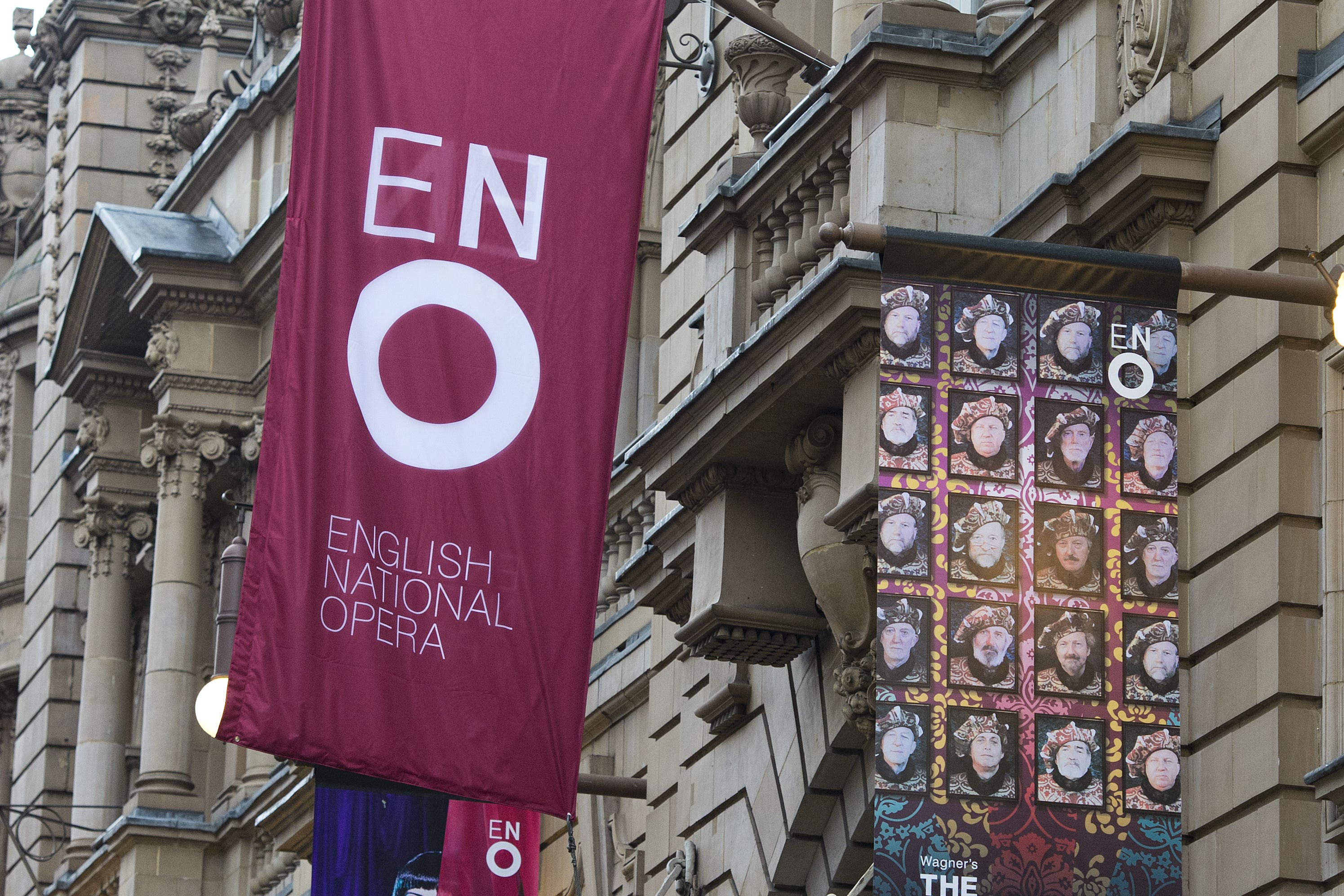Proposed cuts to English National Opera would be ‘disastrous’, says union
It comes after the announcement of a proposal to axe 19 orchestral positions at the ENO and employ its remaining musicians on part-time contracts.

Your support helps us to tell the story
From reproductive rights to climate change to Big Tech, The Independent is on the ground when the story is developing. Whether it's investigating the financials of Elon Musk's pro-Trump PAC or producing our latest documentary, 'The A Word', which shines a light on the American women fighting for reproductive rights, we know how important it is to parse out the facts from the messaging.
At such a critical moment in US history, we need reporters on the ground. Your donation allows us to keep sending journalists to speak to both sides of the story.
The Independent is trusted by Americans across the entire political spectrum. And unlike many other quality news outlets, we choose not to lock Americans out of our reporting and analysis with paywalls. We believe quality journalism should be available to everyone, paid for by those who can afford it.
Your support makes all the difference.A number of musical trade unions have said they are “deeply concerned” about proposed cuts to the chorus and orchestra of the English National Opera.
In a joint statement, Equity’s Singers Committee and Opera Deputies Committee said the proposals would be “disastrous” for chorus members and would cause a “ripple” affect across the UK opera workforce.
Last month, the ENO said it was “surprised” to learn that its music director, Martyn Brabbins, who has been in the position since 2016, had “decided to end his tenure…so abruptly”.
Brabbins’s departure followed the announcement of a proposal to axe 19 orchestral positions and employ its remaining musicians on part-time contracts, a move the Musicians’ Union has previously said it will reject.
The statement from the trade unions released on Thursday said: “Equity’s Singers Committee and Opera Deputies Committee are deeply concerned to hear about English National Opera’s plans to slash its chorus’ contracts and salaries by 40% and further reduce the size of its chorus.
“The immediate impact of management’s proposed cuts would be disastrous for our colleagues in the ENO Chorus.
“The repercussions will also ripple across the entire UK Opera workforce and cause profound anxiety amongst the freelance singers we represent, as we see a further contraction of jobs for singers at ENO.”
Last November it was announced that ENO had been pulled from the Arts Council England’s grant portfolio and was being offered £17 million over three years, which was conditional on relocating outside London.
Arts Council England (ACE) said in July that it had adjusted funding plans to allow ENO until 2029 for a move out of London.
It was also confirmed that ENO will receive £24 million from ACE between 2024 and 2026 to deliver a “substantial opera season every year” in London, as well as establish a new main base outside the capital.
A statement from ENO last month said that the reduction in funding from ACE has caused them to “re-evaluate our employment levels”.
It said: “Whilst the ENO remains grateful for the Arts Council’s revised support and financial investment, and remains committed to creating opera for more people nationally, as for other artistic organisations, this represents a reduction in income against a backdrop of inflation, rising fixed costs and a requirement to develop work across more locations.
The repercussions will ripple across the entire UK Opera workforce and cause profound anxiety amongst the freelance singers we represent
“Sadly, this means that whilst we are no longer facing mass permanent redundancies, we are having to re-evaluate our employment levels across every part of the organisation.
“As we start this difficult process with staff, we believe we have presented viable options that aim to ensure a sustainable future for the ENO whilst supporting our artistic and musical heart as much as possible.
“We will do everything possible to support our employees throughout this very challenging and stressful time and continue our conversations with them and their representative unions in good faith.
The Government had instructed ACE to redistribute funding across the country and, following a backlash, ACE announced in January it would be spending almost £11.5 million in 2023 to sustain a programme of work in London, while helping ENO to start planning for a new base outside London by 2026.
ACE then extended the deadline for a main base outside London by three years, from March 2026 to March 2029.
It is expected that the location will be announced in December this year.
These cuts have not occurred in isolation. Arts organisations are looking to rebuild after the pandemic with insufficient public funding
Equity’s Singers Committee and Opera Deputies Committee have urged the ENO to find a “sustainable solution” to their financial issues which “protects the employment” of ENO staff.
It also called on ACE to “develop a proper strategy” and “provide funding for the public provision of opera for all, including its dedicated workforce”.
The union bodies added: “These cuts have not occurred in isolation. Arts organisations are looking to rebuild after the pandemic with insufficient public funding.
“When Arts Council England removed ENO from the National Portfolio in November 2022, it did so seemingly without any strategy or rationale behind how funding decisions were made.
“Meanwhile, cuts were also made to other companies which have reduced the amount of work available for singers, both in terms of the amount of opera produced and the number of singers engaged, putting the workforce under strain.
“Towns and cities such as Milton Keynes and Liverpool will be deprived of large-scale touring opera, running directly counter to the aims of bringing opera to new and regionally diverse audiences.
“Regular work, underpinned by good terms and conditions, is vital in ensuring that those from all backgrounds can access, and remain in, a career in opera.”